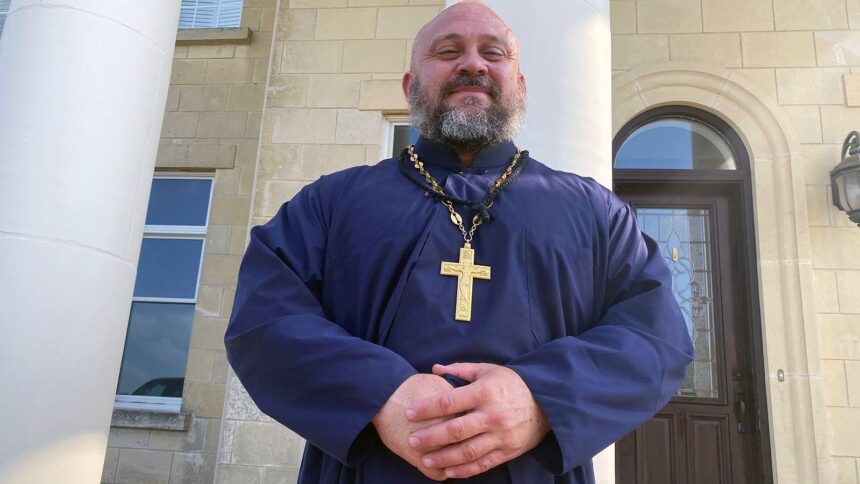Young American Men Embrace ‘Masculine’ Orthodox Christianity
Father Moses McPherson, a robust priest with a growing online presence, has witnessed a remarkable surge in his congregation, which has tripled within just 18 months. Located in Georgetown, Texas, Father Moses serves the Russian Orthodox Church Outside Russia (ROCOR), a conservative offshoot of the Orthodox Church based in Moscow. Through his energetic advocacy of what he terms “absurd levels of manliness,” he has attracted a significant number of young men eager for a traditional masculine identity in today’s rapidly changing sociocultural landscape.
A New Path for Disillusioned Youth
Father Moses, formerly a Protestant and a roofer, now inspires many through YouTube videos where he promotes a virile interpretation of masculinity. He criticizes modern traits often associated with femininity, such as wearing skinny jeans or crossing legs, juxtaposing them with images of weightlifting set to heavy metal music.
“A lot of people ask me, ‘Father Moses, how can I increase my manliness to absurd levels?’” he says in one of his popular videos. This approach resonates particularly with men in their twenties and thirties, like Theodore, a recent convert who once led a seemingly fulfilling life but felt a “hole in his heart.” He shared his frustrations about societal perceptions of traditional roles, lamenting, “We are told that’s a very toxic relationship nowadays,” referring to men supporting their families while women stay home.
Family and Faith as Cornerstones
The trend among these converts extends to family values, with many choosing to homeschool their children as a means to protect them from contemporary societal pressures. By prioritizing a family-centric lifestyle, they hope to ensure a religious upbringing free from influences like “transgenderism or the 57 genders of the month,” as expressed by Father John Whiteford, another ROCOR priest.
| Aspect | Typical View | Convert Beliefs |
|---|---|---|
| Masculinity | Equally shared roles | Men as primary providers |
| Parenting | Public schooling | Homeschooling emphasis |
| Religious Perception | Inclusive, progressive | Traditional, conservative |
Despite representing a small fraction of American Christianity, comprising approximately 1% of the population, ROCOR’s presence is growing. This surge in converts has been bolstered by people feeling lost during the pandemic and looking for a faith that resonates with their beliefs about masculinity and traditional family values.
A Sense of Belonging
Many converts, including former atheist Buck Johnson, are reexamining their perspectives on life and community amidst their newfound faith. “We’re thinking of things long term, like traditions and love for your family,” Buck remarked, indicating a shift towards valuing more substantial commitments in his life.
This movement towards Orthodox Christianity among young men may reflect broader sociopolitical shifts within the United States. As Father Moses continues to attract a following, his congregation diverges from mainstream American values, cultivating a sense of belonging that prioritizes tradition and masculinity in a world increasingly marked by rapid change.




